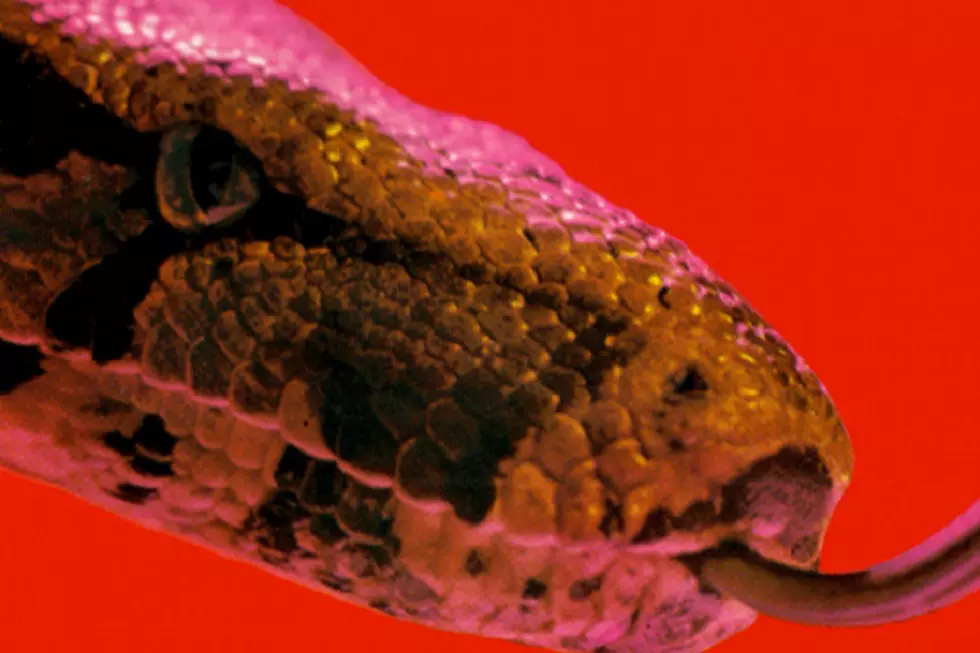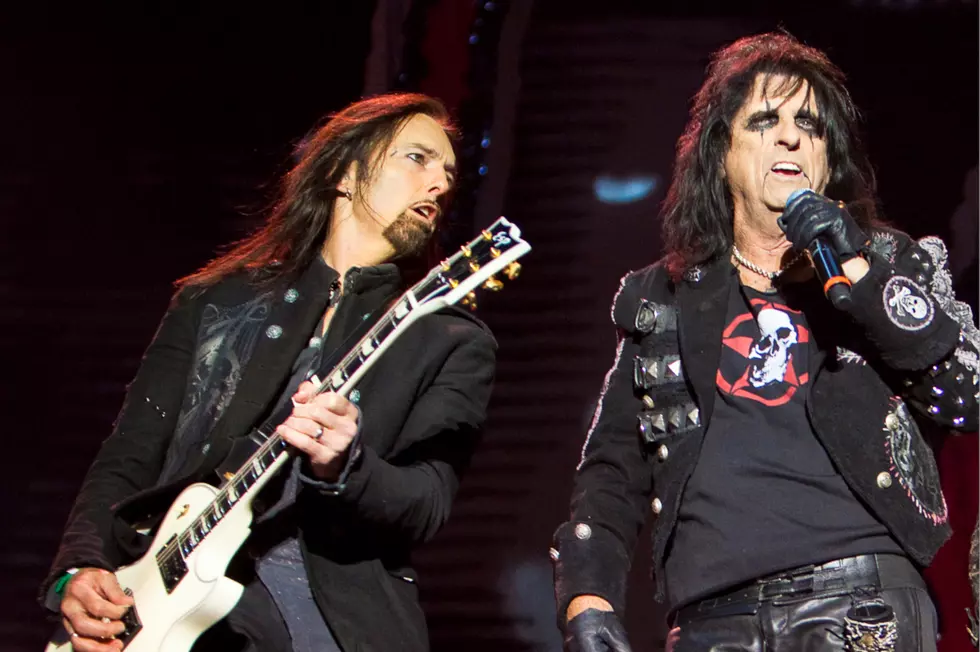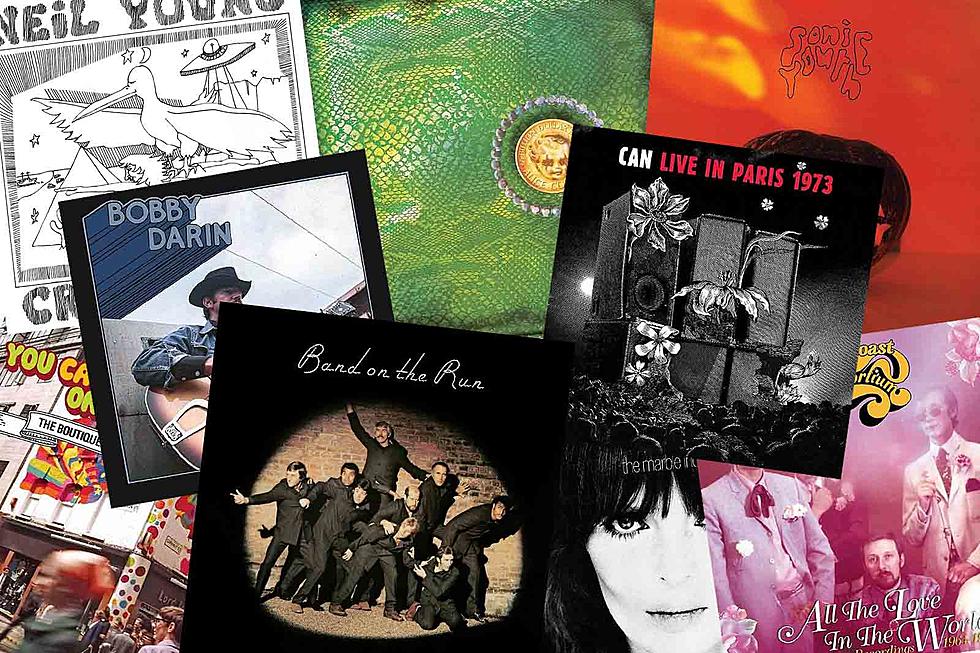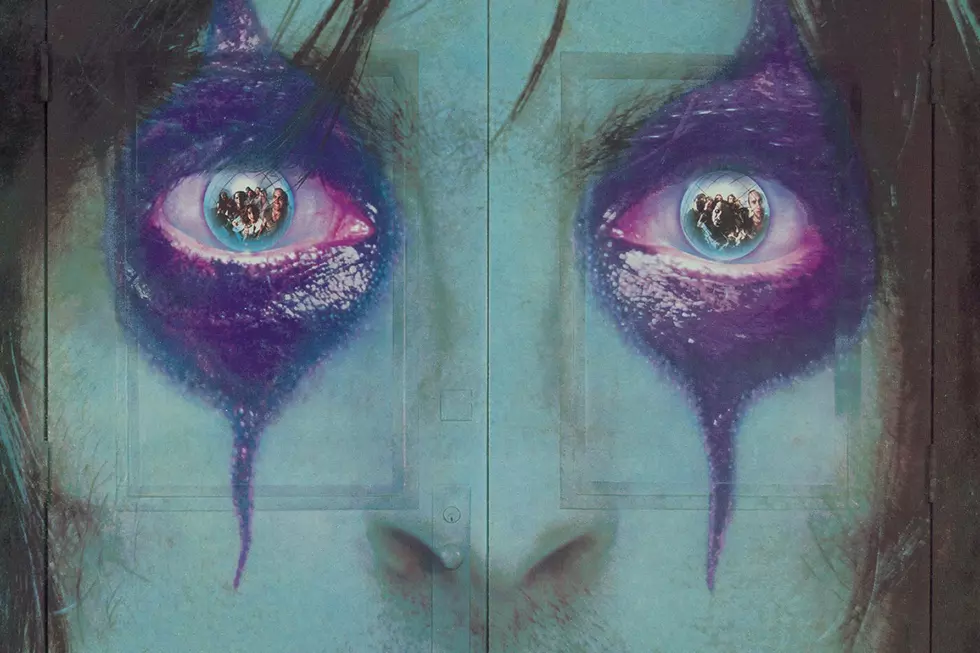
How Alice Cooper Kept Rolling With ‘Killer’
Alice Cooper was on a roll in 1971. Teaming with Canadian producer Bob Ezrin, the band had returned to its Detroit roots (literally and figuratively), working hard to simplify its sound for maximum impact. The first result was “I’m Eighteen,” a big hit for the Alice Cooper from the Love It to Death album, released in February of 1971, and they kept it going later on Nov. 27 of that same year with Killer.
Good things began to happen when Warner Bros. signed the group to a multi-album deal, with Love It to Death as the first offering from that contract. A tour took them to Britain and gained Alice Cooper new celebrity fans from David Bowie to Elton John. And some critics began to see the band as more than an outlandish act with a goofy stage show.
“Not only the image was there. The most important thing, in our mind, was the fact [that] the music has to stand up years from now,” singer Alice Cooper said on In the Studio With Redbeard. “It has to stand up even after they’ve forgotten what we’ve done on stage.”
With longevity as the goal, the band went back into the studio to make Alice Cooper’s second album of 1971 (and fourth overall), with Ezrin again in the producer’s chair. Alice has often praised Ezrin for shaping the band’s sound, going so far as calling Bob “our George Martin,” a reference to the famous Beatles producer.
“All of these great songs started coming out,” Cooper remembered. “Bob worked us hard. I mean, he was hard in the studio. He was a tough guy to work with because he really demanded a lot."
Listen to Alice Cooper Perform 'Halo of Flies'
The hard work paid off on Killer, in both the amount of quality songs and the variety of tunes. The album contained songs that matched irresistible pop melodies with punchy hard rock, landing two singles on the Billboard chart with “Be My Lover” and “Under My Wheels” – which also became Alice Cooper’s first U.K. hit. But the LP also included some more challenging compositions, such as the multi-part “Halo of Flies,” which was also a riff on James Bond-esque spy games.
“Many critics went to great lengths to insult our playing abilities. Many of them seemed convinced that our theatrics were just a crutch to smokescreen our deficiencies,” bassist Dennis Dunaway said. “As for the approach on ‘Halo,’ early in our career, we prided our ability to assemble medleys of our favorite British bands. We did a Kinks medley, a Who medley, a Beatles medley, and we thought our transitions were pretty clever.
“So, years later, having a bunch of extraneous riffs and melodies kicking around, we decided to apply our knack for segues and we came up with ‘Halo of Flies.’ It was the first time many critics finally admitted that we could play. And it proved that the band were self-sufficient in writing our own complex arrangements.”
Other inspirations included Jim Morrison. Alice Cooper and guitarist Michael Bruce paid tribute to the Doors singer on the moody and tense “Desperado,” because he had just died before the band’s Killer sessions.
Listen Alice Cooper Perform 'Dead Babies'
While some might have thought that “Dead Babies” was just an excuse to torture baby dolls in concert, Cooper explained that the song was written by the entire band (including guitarist Glen Buxton and drummer Neal Smith) as an earnest statement.
“Actually that song was probably the first anti-drug, anti-parental abuse song,” Cooper said. “It was like ‘Mom is high and in the other room with some guy she’d never seen before. Dad is out drinking and the baby is taking every pill in the medicine cabinet.’ … It was a total anti-parent abuse song.”
Killer became the Alice Cooper band’s second hit LP in a row, rising to No. 21 on the U.S. chart and No. 27 in the U.K. Critics, including Lester Bangs, praised the album’s sound, grit and songwriting and many in the rock press still consider it to be the group’s best work. So does John Lydon (a.k.a. Johnny Rotten of the Sex Pistols), who has considered the Alice Cooper band among his greatest influences.
“Killer is the best rock album every made,” Lydon once declared, joining a range of musicians from Guns N’ Roses and Jello Biafra to Mojo Nixon and Iced Earth, who’ve taken inspiration from the appropriately named record.
Alice Cooper Albums Ranked
More From Ultimate Classic Rock









